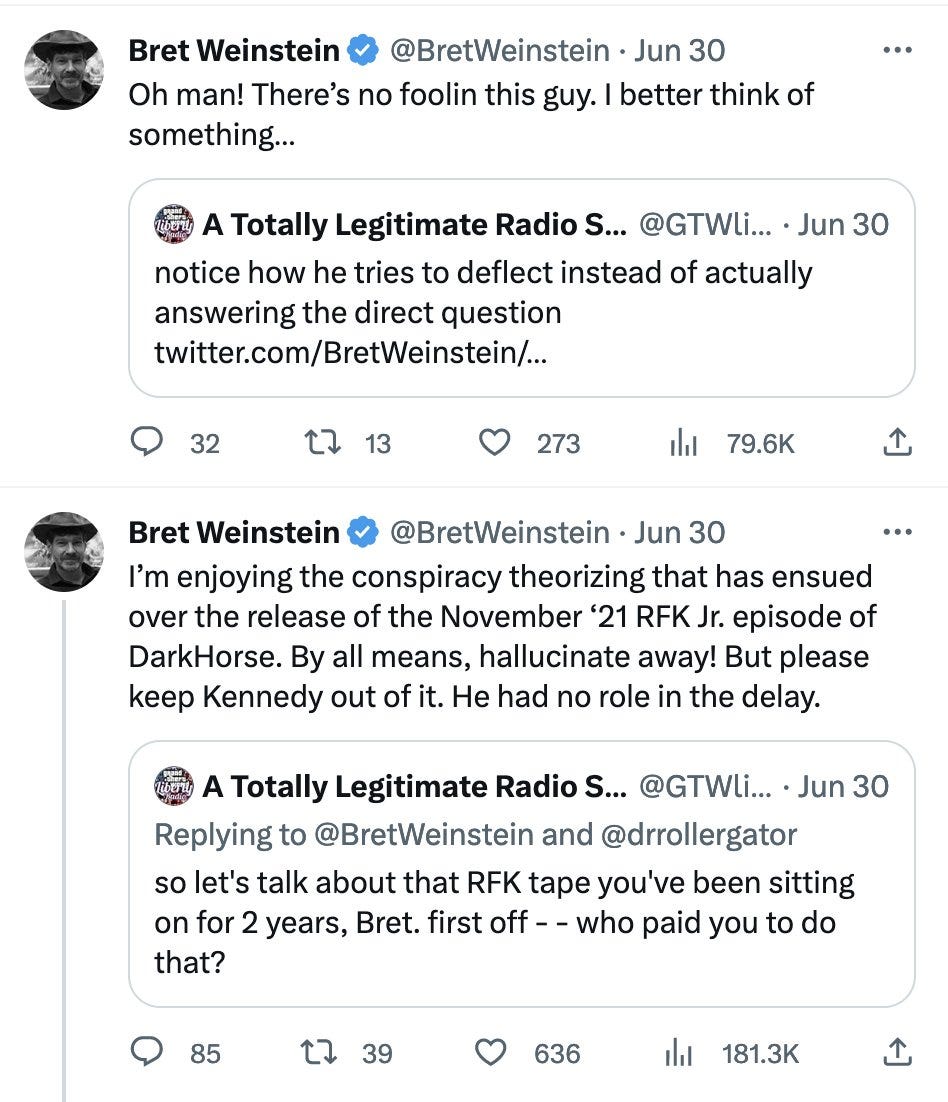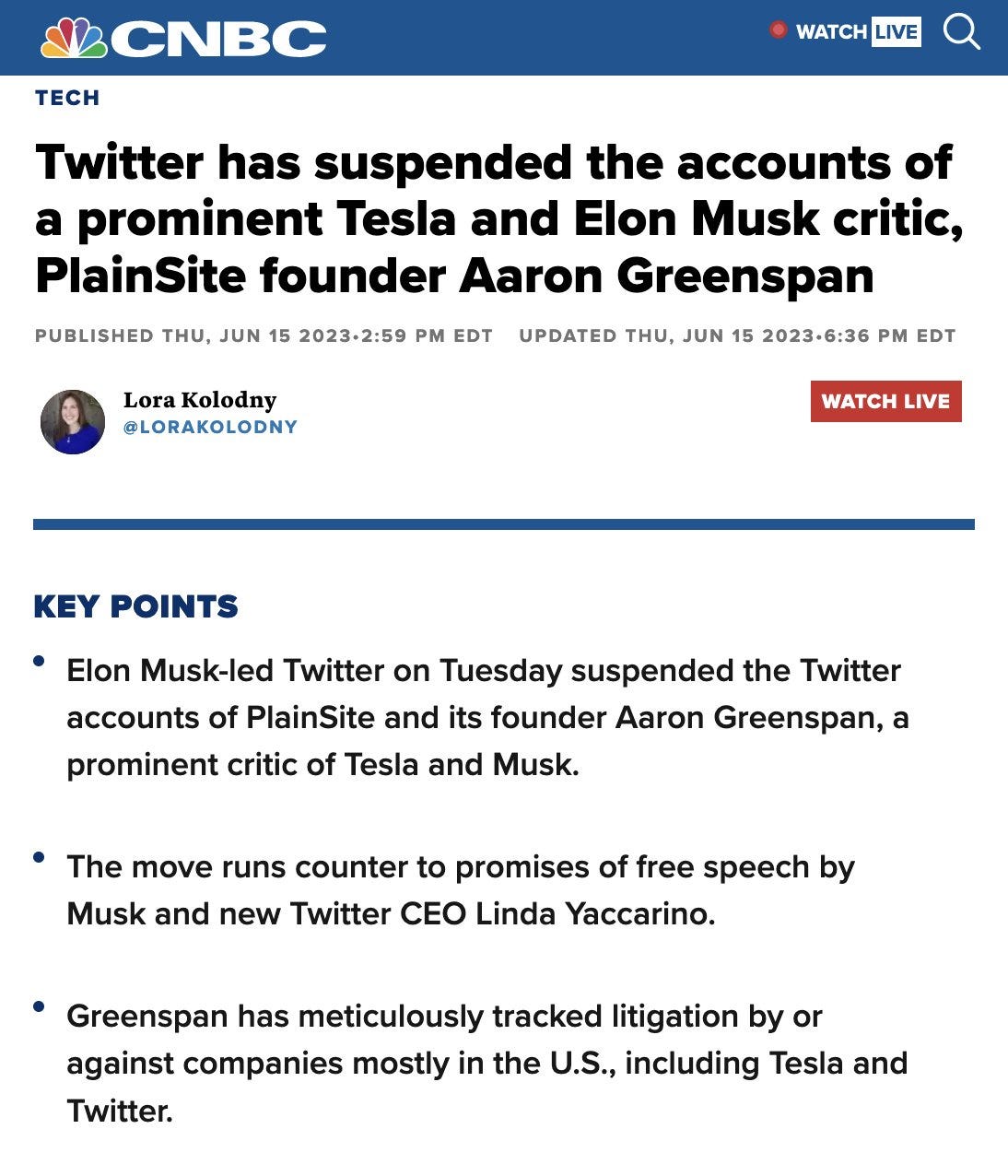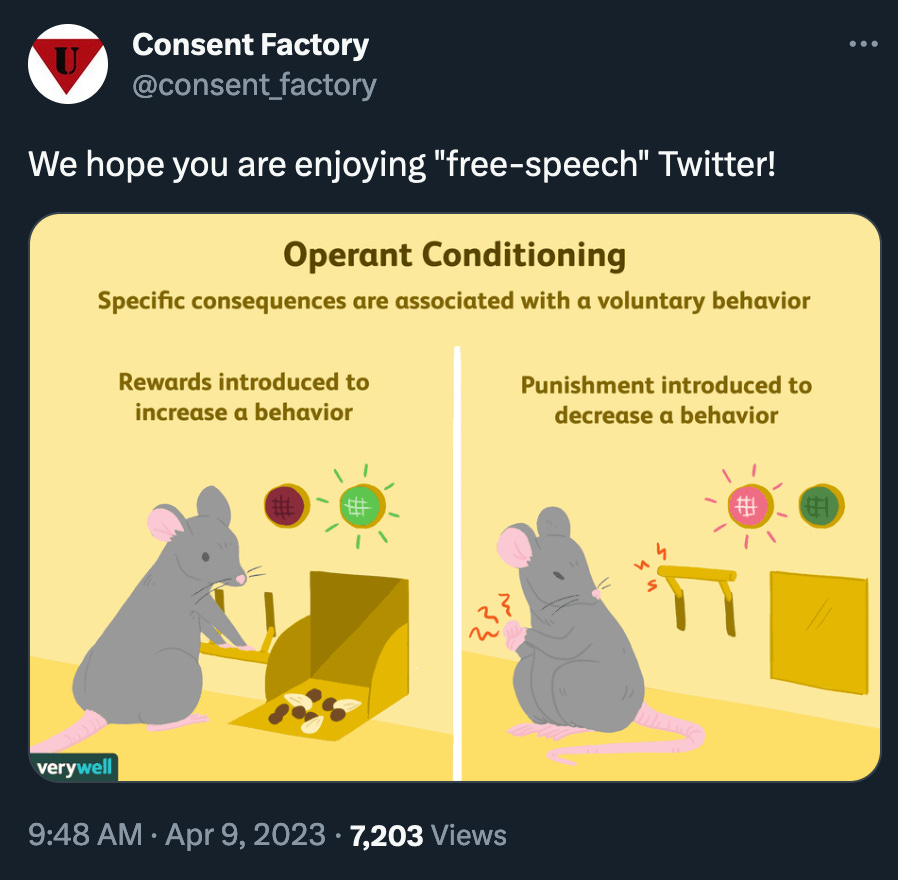Self-Censorship: Why Did Bret Weinstein Shelve His 2021 Interview With RFK Jr.?
The following was originally posted as a thread on Twitter.
During a live stream yesterday, Bret Weinstein addressed the question of why he shelved his Robert F. Kennedy, Jr. interview for over a year and a half before releasing it this week.
This is an interesting situation that's worth a closer look.
This “controversy” (if you can call it that) began on Thursday, when Darkhorse published a video called “RFK Jr From the Vault”
The description says: “In November 2021 Bret spoke to Robert F. Kennedy Jr on the Darkhorse podcast, up until now unreleased.”
Naturally this raised some questions. Namely: Why was it not released in 2021? Why was it instead put in "the Vault" for ~19 months?
Bret Weinstein and his wife/co-host, Heather Hying, don't appear to have addressed it publicly until yesterday's live stream, though Bret said (during the live stream) that he had posted a subscribers-only video about it on Twitter at some point prior:
Those of us who aren't paying their $3/mo subscription fee on Twitter aren't able to confirm when it was posted, what he said, or even its existence, apparently, but it seems unlikely that he would just make this up.
More interestingly, despite (apparently) having not provided any public explanation – which he had to have known would inevitably result in questions and speculation – Bret decided to take a swipe at "the conspiracy theorizing that [had] ensued" on Friday:
This seemed somewhat odd and out of character, frankly, and it's what got the attention of a number of us who were otherwise not really following this.
Whether or not it fits this criteria that he proposed in 2020 he would have to clarify (seriously - not totally sure):
At any rate, the most “liked” reply to his “conspiracy theorizing” tweet (+146) simply said: “What was the reason then?” The 3rd most liked was from Decensored News, asking:
So let's look at his explanation.
Bret talks about himself & Heather having had their income "evaporate" twice in recent years:
1. Having to abruptly leave their professorships at Evergreen in 2017
2. Getting demonetized by YouTube for their dissident Covid-era broadcasts
Their YouTube demonetization occurred in June of 2021. Bret said during this weekend's live stream that it was never restored after that. This was months before his RFK Jr. interview, which was in Nov 2021.
He said that YouTube was trying to get them to “drop the science and stick to the narrative,” to which he defiantly replied, “No, YouTube. Review *this* video.”
The video that he told YouTube to “review” was basically him explaining & analyzing the situation and announcing that they are “moving [their] audience” to Odysee, where they can speak more freely:
Also, although he said that YouTube demonetization wiped out “more than half” of their income, he went on to say that “belts tighten, income can be replaced,” and that “#CensorshipKills.”
We now know that, a few months later, his RFK Jr. interview was censored – and that, according to him, it was an act of self-censorship.
Also of note is the way Heather reacts to his repeated statement that "we" decided not to put it out.
Watch Heather:
This is speculation, but it doesn't look like this was a decision that was made jointly with Heather.
She seems surprised, perplexed, and possibly somewhat annoyed by his "we" framing.
Could be wrong, but her question & behavior appear more consistent with her not having been a part of (or at least not fully on board with) the decision, but also being cautious not to challenge him too strongly on a live feed.
Bret: "We decided not to release it"
Heather: "So... the 'we' is... you and Bobby?"
Come to your own conclusion about that, but in any case, the question remains: If they were already demonetized from YouTube, why did they not just put it out as an Odysee exclusive?
Bret doesn't really answer that in a clear & direct way, but he does say:
They were facing a well-funded slander campaign & "tremendous amount of firepower."
"It wasn't strictly about YouTube. There was lots of stuff pointed at us across many domains."
In "that environment" it was "too risky" and "just wasn't safe" to release the interview.
The question then is what, exactly, he meant by it not being "safe," and what he felt was at "risk." Since he didn't elaborate on the live stream, we're left to deduce. Here's a guess:
Escalated attacks from the media & others
Ensuing reputational damage
Darkhorse pulled from Apple Podcasts and/or Spotify
Their accounts banned from Twitter & other social media
Cut off from Paypal, Stripe, etc.
Indeed, at the beginning of his newly-released Robert Kennedy, Jr. interview from 2021, Kennedy himself joked that "this may be Bret's last podcast."
Bret: "You joke, but I think we should talk a little bit about the predicament here..."
Bret admitted that he himself was somewhat apprehensive about supporting Kennedy's work publicly, even though (he said) he doesn't think Kennedy is wrong in his “interpretation of the evidence,” and that he is an “honorable person” who “should be treated as such.”
“I know a great many people that we know in common. And I keep having a conversation with people that I respect, who like and respect you, but are afraid to say so publicly (...) And I must say, I wrestled with this myself.”
It may have gone even deeper than that. On October 29, 2021, Bret said he had a weird experience with a search for the word "suicide" randomly popping up in his phone's browser. (from Darkhorse Livestream #147)
Bret left open the possibility of a non-nefarious technical explanation, but was (ostensibly) spooked enough that he felt compelled to tell the story publicly & clarify that he's not suicidal.
This would have been a few weeks or less before his Nov 2021 interview w/ RFK Jr.
“We have been a sticky wicket for Goliath. And one can imagine that such [a phone incident]... could scare certain people off...”
“There are obviously hundreds of billions of dollars at stake and criminal liability... the kinds of things that people do terrible stuff over.”
So what can we take from this? Why was/is this situation worth looking closer at and pondering?
The biggest reason might be the overarching theme and conversation topic that it raises.
Namely: Self-censorship.
We – people who care about freedom of speech, and freedom in general – talk a lot about censorship, but we probably don't talk enough about self-censorship. This is a chance to get the conversation going.
Some thoughts:
Bret Weinstein has said on numerous occasions that "Censorship kills" (or #CensorshipKills).
But self-censorship is a form of censorship.
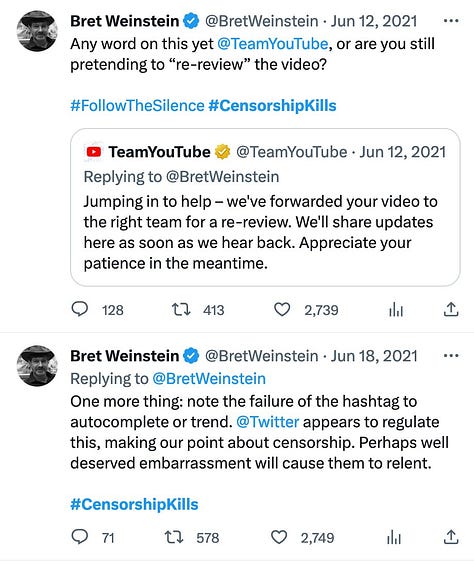

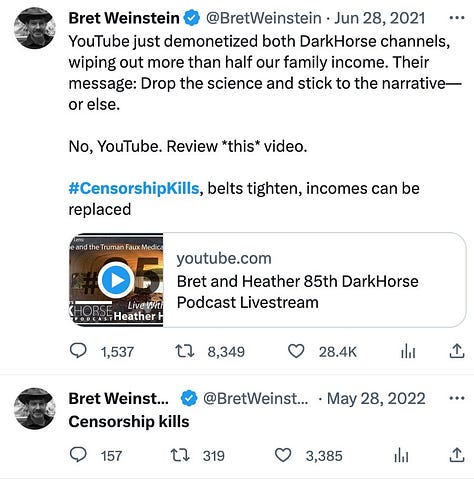
This is not to imply that Bret is a "killer" for self-censoring the RFK Jr interview (though of course people are free to make that argument if they want).
Self-censorship is often coerced in some way. That doesn't automatically justify it, but it seems a worthwhile distinction.
There is – it would seem – a difference between an external censor, who stops others from speaking (or interferes with their "freedom of reach")
vs.
Someone who refrains from saying (or publishing) something that they WANT to say for fear of the repercussions.
Did Bret WANT to put out the RFK Jr. interview at the time?
It seems like the answer is yes.
Did he WANT to bury it until now?
It seems like the answer is no - but he was intimidated. (Does it not?)
From the outside, it's easy to say that he shouldn't have done it; that he should have put it out; maybe even that self-censorship is inherently wrong and inexcusable at all times.
Maybe some or all of that is true. If people believe that, please make the case.
Regardless of whether or not this specific instance of self-censorship was warranted – at the time or in hindsight – it seems to be the case that self-censorship is probably at least sometimes justifiable (Maybe; this is what we in indie media, and as a society, need to work through.)
Here's another example: Jimmy Dore.
With 1.21 million subscribers and counting on YouTube, he is certainly one of the most influential figures in the broad "pro-1A" camp (and anti-medical tyranny, etc).
But it comes at a price: *some* amount of self-censorship.
If you watch his show, he makes allusion to it on occasion (the speech restrictions that he's operating under), and seemed to have done so even more during 2021-2022, when the Covid-related censorship was even more intense.
Was/is that wrong? Should Jimmy Dore have not self-censored at all (and thus gotten booted long ago)?
Or has doing so been "worth it," and even moral?
Why or why not?
(Serious, open-ended questions - not just rhetorical)
Or how about Twitter users?
How many people modified their language or bit their tongue during “Twitter 1.0” to avoid getting banned or shadow-banned?
(The common thought process was, “at least I can get *some* truth out; if I get banned then I'm silenced completely.”)
How many people on “Twitter 2.0” are doing the same thing now, knowing that certain things will (still) get you “deboosted,” shadow-banned, etc?

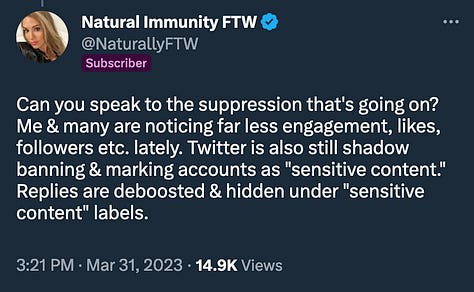

…or outright banned:
Consent Factory summed the situation up succinctly a few months ago:
For their part, Bret and Heather actually refused to self-censor on YouTube in 2021, knowing that it would likely result in their demonetization (i.e., a heavy personal financial cost).
This is ~2 weeks before they were demonetized:
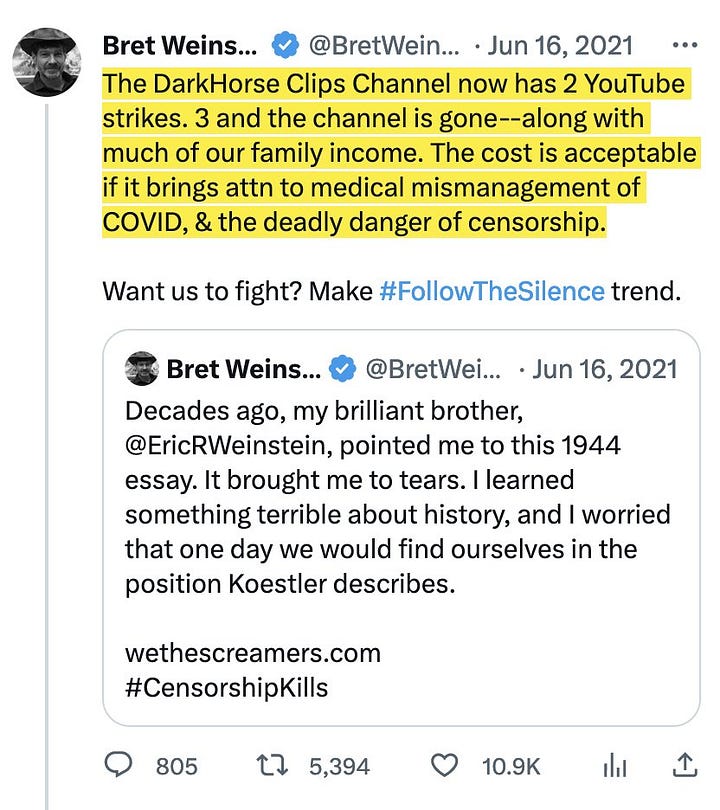
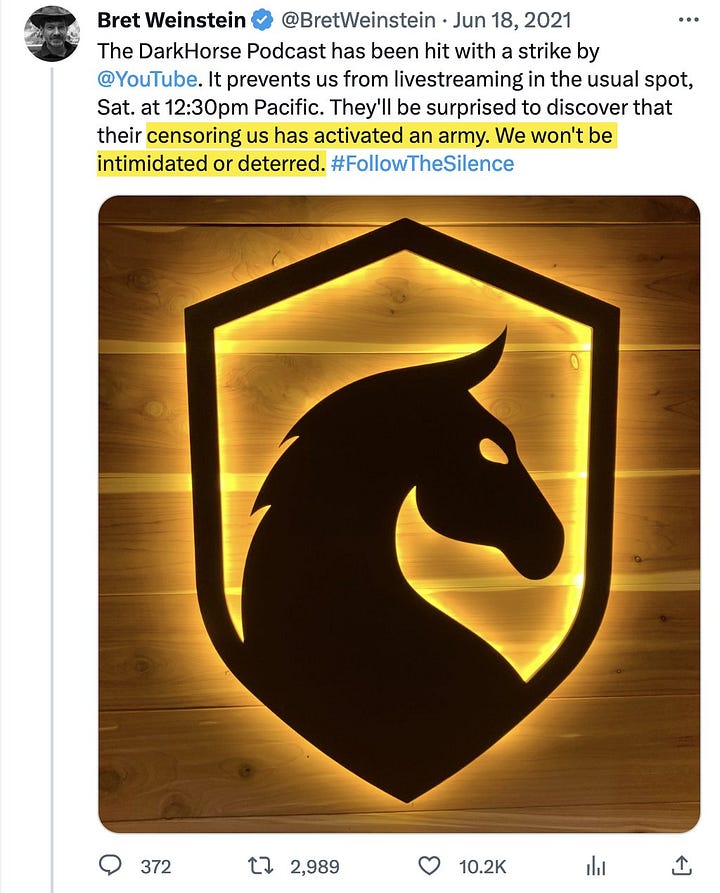
Given this context, it wouldn't be surprising if Bret feels a bit morally conflicted & embarrassed about having ultimately self-censored (at least once) — a common psychological knock-on effect of doing so, and one which may also explain his "conspiracy" comments & frustration w/ questions re: his motives. (Note: “explaining” it doesn’t necessarily mean “excusing” it.)
Wrapping up: Self-censorship is pretty widespread - more so than many probably realize.
When is justified? Why is it happening? What are the biggest "pain points" (or sticks, as in carrots & sticks) that cause it? How can we eliminate them to reduce the pressure to self-censor?
Would love to hear from @BretWeinstein and/or @HeatherEHeying on this (and to correct anything that they feel is wrong or unfair in this thread), but this is an open question for anyone.
Thoughtful / civil replies are appreciated.
BONUS: @GEdward_Griffin talks about self-censorship (1968)
He relates the story of an anti-communist refugee in this clip, but in the full presentation he goes on to explain that this same dynamic is present under fascism & all other forms of totalitarianism as well.
Official website: decensored.news
Twitter: @decensorednews
Gab: @decensorednews
Telegram: decensorednews
Rumble: decensorednews
Odysee: @decensorednews:6





